How well do you actually know your obligations under your current lease agreement? We’ve heard numerous expat stories and experienced issues ourselves that make it seem like some landlords just throw whatever conditions they feel like into the lease. They then hope that enough of it sticks, especially when it comes to the pointy end when you’re asking for your deposit back.
We’ve included what Michelle and I nicknamed our ‘contrato del infierno’ (contract from hell) to use as a bit of a case study guide. I was actually quite appalled when I first read this contract as it was so incredibly biased towards the landlord that I couldn’t believe anyone in their right mind would agree to it. We provide some options for avoiding similar situations too.
Whilst I am a lawyer, this certainly is NOT legal advice. You’d be well advised to discuss any discrete legal matter with a qualified professional. And, as luck would have it, we do have a very cost-effective way for you to receive this help (skip to the bottom if you just want this).
Okay, let’s get stuck in!
Ecuador rental agreement fast facts
Lease duration: 1 year is standard. 2 years is also common
Deposit required: 1 month by law. Some landlords ask for 2 months
Who pays the property rental agent: The landlord pays the rental agent. This is generally equal to the deposit amount.
Who pays for repairs? The landlord pays for general maintenance. The tenant pays for any damages. ‘Fair wear and tear’ can be a bit of a gray area.
Notarization: Your lease should be notarized & registered with the municipality. This makes it easier to challenge later on as it falls within a certain framework. There are still legal remedies for a non-notarized agreement, but you may find the process more challenging.

Lease background
The lease we’re using as the case study is from our previous experience when searching for a house to rent in Challuabamba (20 mins outside of Cuenca towards Azogues).
As much as we loved the house, it became very clear that we were going to be dealing with a difficult landlord and this is a huge red flag for us. In our experience, it’s the relationship with the landlord that is the most important aspect of renting in Ecuador.
Sure, you do have some recourse to challenge via the court system, but that’s generally the very last resort as it’s stressful and costly. We’ve found it’s so much better on every level to try and maintain a positive relationship with your landlord. But, we also fully understand that this is not always possible and there are times when the courts are necessary.
The rental agent was on our side
Whilst the overall experience dealing with this landlord was not pleasant, the silver lining was we were introduced to a reliable, trustworthy property rental agent. This agent also recognized the proposed contract was very problematic and fought to have it changed to something that was more reasonably balanced towards the tenant.
We weren’t pressured at all by the agent. This agent understood the value of a long-term relationship with clients – even if this is at the expense of short-term financial reward. Such a view can be quite rare when dealing with property agents – whether in Ecuador or elsewhere.
Download a copy of the lease & comments
You can download a copy of the lease here (in Google Sheets: File -> Make a Copy). This includes my many comments. Some comments involve questions of law, whilst others are more towards aiding our negotiation position.
Negotiation is a very valuable skill in Ecuador and something that I’m still trying to properly understand. This can be especially true in business here, but that’s another story…
The original lease is in Spanish, but my comments are in English as that’s my native. My Spanish level is intermediate, so Michelle’s native Spanish really helps with some of the finer details & jargon during the negotiation.
Specific clause breakdown
I’ve included a breakdown for each of the main clauses we didn’t agree to. If you have your own troubling clauses that you didn’t agree to, we’d love for you to include them in the comments at the bottom of the article.
Landlord’s right to terminate
Original clause
“En caso de que EL ARRENDATARIO contravenga cualquiera de las condiciones estipuladas en esta cláusula, LA ARRENDADORA podrá dar por terminado el contrato de arrendamiento en cualquier momento y por ende a solicitar la inmediata desocupación del inmueble arrendado.”
English translation
“In case THE LESSEE contravenes any of the conditions stipulated in this clause, THE LESSOR may terminate the lease at any time and therefore request the immediate vacating of the leased property”
Our issue with this clause
This clause reads as though the landlord can terminate the agreement for any breach. This is particularly worrying when you read the rest of the contract because there are so many ways for us to breach the contract.
If we agreed to this, I’d fully expect the landlord to kick us out whenever they wanted.
In reality, I’d be comfortable fighting this clause if we really needed to as there are several legal issues with it. At the highest level, a general principle of contract law is you can’t just terminate a contract for any breach. It needs to be something substantial. This is before getting into specific tenancy rights of Ecuador (which is beyond the scope of this article).
Penalty for non-compliance
Original clause
Se establece que en el caso de incumplimiento de alguna de estas prohibiciones, causales de derogación del contrato, EL ARRENDATARIO deberán cancelar a LA ARRENDADORA el valor equivalente a _ cánones de arrendamiento en concepto de penalidad, valor que no será objeto de reclamo alguno por parte de EL ARRENDATARIO.
English translation
It is established that in the event of non-compliance with any of these prohibitions, which are grounds for termination of the contract, THE TENANT shall pay THE LANDLORD the amount equivalent to _ as a penalty, which amount shall not be subject to any claim by THE TENANT.
Our issue with this clause
This clause was just flat-out weird for me to see in a tenancy agreement. In addition to the landlord being able to terminate the entire contract for any breach, they also wanted us to pay them a penalty.
I’m not sure if this is legal, but it certainly didn’t sit well with us. It’s common to see penalties in commercial contracts, especially where one side stands to lose significant amounts of money because of a breach by the other party. But, it’s another thing to see this in a tenancy contract as consumer legislation generally prohibits it.
We certainly would have received legal advice on this matter if we were seriously considering renting this house. But, we ran the other way long before we even considered running this property through the rest of our due diligence process.
Another penalty & indemnification
Original clause
En cualquier caso que la arrendataria se convirtiere en injusta detentadora de la propiedad arrendada, entendiéndose por esto la negativa a desocupar y entregar la propiedad sea por incumplimiento a convenio de terminación de contrato, por desahucio con requerimiento; o mandato judicial. EL ARRENDATARIO deberá pagar a EL ARRENDADOR como indemnización la suma diaria de US$_____ por cada día que detente injustamente la propiedad arrendada, más los impuestos de ley, hasta que sea entregada a EL ARRENDADOR. El pago de esta indemnización deberá hacerse en forma diaria y podrá exigirse por la vía judicial sin necesidad de que sea por cuenta separada; el pago de la indemnización es sin perjuicio del pago de las pensiones de arrendamiento que deberán pagarse hasta la completa desocupación y también los gastos de, servicios básicos de agua, luz, teléfono, etc. Una vez cumplidos los 30 días de retraso, si EL ARRENDATARIO no desocupa el bien, EL ARRENDATARIO deberán cancelar el valor equivalente a _ cánones de arrendamiento a modo de penalidad, renunciando por voluntad propia a todo tipo de reclamo por los mismos.
English translation
In any case that the lessee becomes the unjust holder of the leased property, this being understood as the refusal to vacate and deliver the property either by breach of a termination agreement, by eviction with injunction, or by court order. THE TENANT shall pay THE LESSOR as indemnification the daily sum of US$_____ for each day that he/she unjustly holds the leased property, plus the taxes of law, until it is delivered to THE LESSOR. The payment of this indemnity shall be made on a daily basis and may be demanded through the courts without the need for it to be on a separate account; the payment of the indemnity is without prejudice to the payment of the lease payments that shall be paid until complete vacating and also the expenses of basic services such as water, electricity, telephone, etc. Once the 30 days of delay have expired, if THE TENANT does not vacate the property, THE TENANT shall pay the equivalent value of _ as a penalty, renouncing of its own free will to any type of claim for the same.
Our issue with this clause
Here is yet another penalty clause. But, this one goes a step further by insisting we indemnify them by paying a daily penalty fee. This is in addition to the once-off penalty fee they’ve also allowed for. Crazy right?
Was there any sort of penalty to the paid by the landlord in case of non-performance? Nope. Nada.
Do you see how this was likely to play out if we agreed to this rental contract?
The combined effect of the 3 previously discussed clauses raises the probability that the following would occur:
- Landlord accuses us of being in breach of one of the vaguely worded terms.
- Landlord uses this as a basis of issuing an eviction notice, whilst also putting their hand out for their penalty. We can forget about ever seeing our deposit back at this point.
- We refuse to leave because we haven’t done anything legally wrong.
- Landlord now includes their daily indemnification and other penalty.
- Landlord says we now owe them thousands of dollars due to all of these penalties. They have no intention of taking this to court because they know that at least some of the contract is not legal. They start negotiating with us for a lesser amount in the hope we’ll just accept because we don’t want to take them to court.
- We eventually leave on our own accord because the landlord has grinded us down over time. Landlord keeps deposit.
- They rinse and repeat
Now, you’d be forgiven if you were skeptical on the above scenario as I’ve clearly made a bunch of assumptions. But, given the context, you’d also have to be a little naive to think the above wasn’t at least a reasonable possibility.
Shady security monitoring costs
Original clause
SEXTA: Canon de Arrendamiento. – El canon mensual se lo fija en común acuerdo en la suma de Dólares de los Estados Unidos de Américca (US$ ___) por el primer año.
INCLUYE el monitoreo del inmueble y será cancelado directamente por el Arrendador a la Compañía de Seguridad que brinda este servicio. Si este servicio llegara a incrementarse, este nuevo valor será asumido por el ARRENDADOR
English translation
SIXTH: Lease Fee. – The monthly fee is fixed by mutual agreement in the amount of United States Dollars (US$ ___) for the first year.
It INCLUDES the monitoring of the property and will be paid directly by the Lessor to the Security Company that provides this service. If this service is increased, this new value will be assumed by the LESSOR.
Our issue with this clause
This was an interesting clause. It basically tipped us off to the fact we can’t trust this landlord. At 1st glance, it doesn’t seem that bad; we’d pay the alarm costs directly to the company. But, the landlord later tried to change this to us paying him directly as part of the rent.
We contacted the same alarm company and received a quote for around half of what the landlord wanted to charge (for the same service). It was the landlord’s dishonesty when asked about this that made it very clear we would never be doing business with them.
Paint the walls & original condition

Original clause
La garantía será devuelta a EL ARRENDATARIO, una vez que éste presente las planillas de servicios básicos pagadas hasta el día que ocupó el inmueble y además esté debidamente pintado y en las condiciones originales como la recibió.
English translation
The guarantee will be returned to THE LESSEE, once he/she presents the utility bills paid up to the day he/she occupied the property and it is duly painted and in the original condition as received.
Our issue with this clause
You may find there is a general expectation that as a tenant, you are responsible for painting the walls when you leave a property. It’s happened to us several times and we generally factor it into our moving-out process in an effort to ensure we receive our full deposit back.
But, it doesn’t mean you’re legally obliged to improve the property which is what this landlord was effectively asking us to do.
They weren’t going to provide the property to us freshly painted but were requesting us to ensure it was painted before we left if we wanted our deposit back. This also contradicts this same clause as they are also requesting we provide the property in the same condition we found it.
They can’t have it both ways. If they wanted it painted when we depart, then they need to provide it to us in this condition.
Using deposit as last month’s rent
Original clause
SI EL ARRENDATARIO decidiere unilateralmente poner término al arrendamiento de manera anticipada, se obliga a pagar __ cánones mensuales como indemnización del lucro cesante por concepto de dicha terminación, sin perjuicio de asumir el costo de las reparaciones que fueren necesarias. El depósito en Garantía no podrá ser utilizado bajo ningún concepto para el pago de cánones de arrendamiento atrasados.
Translated clause
IF THE LESSEE decides to unilaterally terminate the lease early, he shall pay __ monthly rent as compensation for the loss of profit due to such termination, without prejudice to assume the cost of any necessary repairs. The security deposit may not be used under any circumstances for the payment of overdue rental fees.
Our issue with this clause
We’ve included this clause to highlight a common issue; it’s all too common that a landlord just decides not to give the security deposit back. Sometimes there are clear reasons why a deposit is withheld, but there are also occasions where the landlord is just being a jerk because they hold the balance of power.
It’s a real tough situation as a tenant and I don’t have an easy solution. It’s possible that you play by the rules and give proper notice to the landlord, only to have them decline your deposit request. Now the burden is on you to go through the court process in an effort to regain your deposit.
A common response from tenants to avoid this is to use the security deposit as the last month’s rent. This now puts the burden on the landlord to challenge your actions through the court. And, they’d most likely win as you have no right to offset the security deposit against the last month’s rent. In all likelihood, the landlord won’t take you to court, but you are leaving yourself open to this risk if you pursue this path.
For us, this is the core reason why it’s important to have a very good relationship with your landlord. This also means being very ruthless during the property search process. If we receive even a hint of dishonesty throughout the negotiation process, then we cut ties straight away and move on. Our adherence to this rule has certainly cost us some very nice houses, but I’m equally sure we’ve avoided a lot of negativity by cutting ties early.
Fair wear and tear?
Original clause
En caso de pérdida, rotura o deterioro de cualquiera de los accesorios señalados, exceptuándose el desgaste natural por el uso de los bienes arrendados según su naturaleza, se compromete a reemplazarlos con otro u otros de igual clase y calidad, o pagar a EL ARREDADOR, de contado y a satisfacción de éste, el valor que tendrá en ese momento en el mercado.
English translation
In case of loss, breakage, or deterioration of any of the aforementioned accessories, with the exception of natural wear and tear due to the use of the leased goods according to their nature, he undertakes to replace them with another or others of the same kind and quality, or to pay THE LANDLORD, in cash and to the satisfaction of the latter, the value they will have at that moment in the market.
Our issue with this clause
They included this ‘fair wear and tear’ clause after pushing them on the issue. Which is certainly a good start. But, they didn’t update the rest of the contract to make it clear what is and what is not ‘fair wear and tear’.
The outcome is that we didn’t know whether we’d be on the hook for any damages to things like the carpets, blinds and other items that have an accepted lifespan.
It’s unclear whether this was just poor drafting (we’d be very surprised if a lawyer had drafted it), or if they deliberately kept our responsibilities vague so they had more ammunition to throw at us when we wanted to receive our deposit back. My hunch says it was the latter.
It’s good practice to make sure a fair wear and tear clause is explicitly mentioned in rental agreements. If the landlord doesn’t want to agree to this, then you can bet your bottom dollar that they will also point to some ‘damage’ and use it to deduct some or all of your deposit.
Service connections
Original clause
Los costos por obtención de nuevos servicios y/o trámites relacionados a la contratación de los servicios básicos, u otros requeridos por EL ARRENDATARIO, son de responsabilidad de el ARRENDATARIO quien cubrirá estos costos directamente con las empresas o instituciones que brindan los servicios.
English translation
The costs for obtaining new services and/or procedures related to the contracting of basic services, or others required by THE TENANT, are the responsibility of THE TENANT, who will cover these costs directly with the companies or institutions that provide the services.
Our issue with this clause
At face value, we don’t really have an issue with this clause as we are generally happy to pay for having our services connected. But, we’d previously discussed with the landlord having them install a 220V electricity connection so I can use my imported espresso machine. They had already agreed to pay for this but clearly hadn’t updated the contract to reflect our verbal agreement.
Contracting out of tenancy legislation
Original clause
CLAÚSULA ESPECIAL: Fijación del canon de arrendamiento. – EL ARRENDATARIO acepta el precio, canon o pensión del arriendo estipulado mutuamente por las partes contratantes y por lo tanto renuncia al derecho sobre la fijación del precio o canon de arrendamiento del inmueble arrendado por parte de la Oficina del Inquilinato del Municipio de Cuenca y el Código Civil, sea éste mayor o menor del aquí estipulado y además cualquier otra ley que pudiera expedirse sobre el precio o canon de los arrendamientos de predios urbanos. Rununcia que no está prohibida por mirar exclusivamente el interés individual de las partes renunciantes de conformidad con lo previsto en el art. 11 del Código Civil vigente, aplicable a los contratos de inmuebles urbanos, por lo dispuesto en el inciso final del art. 1 de la Ley de Inquilinato vigente. Además los gastos legales que se incurra para inscribir este contrato serán pagados por el ARRENDATARIO.
English translation
SPECIAL CLAUSE: Fixing of the rental fee. – THE LESSEE accepts the price, canon or pension of the lease mutually stipulated by the contracting parties and therefore waives the right on the fixing of the price or canon of lease of the leased property by the Office of the Tenancy of the Municipality of Cuenca and the Civil Code, whether it is higher or lower than the one stipulated herein and also any other law that may be issued on the price or canon of the leases of urban properties. Rununcia that is not prohibited by looking exclusively at the individual interest of the renouncing parties in accordance with the provisions of art. 11 of the Civil Code in force, applicable to contracts of urban real estate, as provided in the final paragraph of art. 1 of the Tenancy Law in force. In addition, the legal expenses incurred for the registration of this contract shall be paid by the TENANT.
Our issue with this clause
The intent of this clause is to limit our rights under existing tenancy legislation when it came to agreeing on the rental price.
Honestly, we aren’t entirely sure the extent to which the landlord was trying to limit our rights because we never got far enough into the process to engage a lawyer. But, the simple fact that the landlord wanted to go around legislation that is expressly created to protect the rights of tenants was another significant red flag. They certainly weren’t doing this for our benefit.

All registration fees to be paid by tenant
Original clause
DÉCIMA QUINTA: Gastos. – Las partes han convenido que todos los gastos, impuestos y trámites de inscripción del presente contrato de arrendamiento serán de cargo de EL ARRENDATARIO en forma total.
English translation
FIFTEENTH: Expenses. – The parties have agreed that all expenses, taxes and registration formalities of this lease shall be borne entirely by THE TENANT.
Our issue with the clause
Even though it appears to be the norm that tenants pay for notarization costs etc, we don’t understand why this is the case. Owning an investment property is a business and like other businesses, there are running costs. Paying some of these fees is just a cost of doing business.
But, the main reason we push for the landlord to absorb 50% of the fees isn’t to save a little cash (although it’s very nice as moving costs can add up). We push for it mainly to see if the landlord is willing to work with us. Them saying no to the request isn’t automatically a deal-breaker, but it’s the way they communicate and negotiate on the issue that gives us a read into how our future relationship might develop.
If the landlord doesn’t even consider contributing to the fees, we walk away. Period.
How we tried to proceed with this landlord
I trust you’ll agree the original agreement proposed by the landlord was a mess. In addition to being incredibly one-sided, it was confusing and poorly drafted.
Even though we provided these detailed markups to the landlord, we also let them know we were so far from reaching a consensus that it would be much quicker to start fresh with a new contract.
They initially appeared interested in this approach, but then started slipping the same clauses into their newly proposed contract. This was the last straw so we walked away. In hindsight, we should have turned our backs sooner.
How to avoid these types of issues?
The issues surrounding renting in Ecuador, especially on whether you will get your deposit back, tend to be highly discussed topics by expats. Everyone has a story to tell. It’s tempting to think this is just a ‘gringo-gouging’ thing, but locals experience many of the same issues. Nice to know expats aren’t singled out I guess…
It’s impossible to 100% safeguard yourself from a bad landlord anywhere in the world. But, it’s especially so in Ecuador where consumer protection is weak and the landlord is at a significant advantage due to language and cultural barriers.
In saying that, the steps we do suggest taking to protect yourself:
1. Be prepared to walk away
Walk away from the property if there is even the slightest hint of deception. This can result in some false positives because of the language barrier. You may also need to say no to a property that is otherwise perfect. This is still much better than the possible alternative.
2. Have your agreement reviewed
I’m fortunate enough to have a solid high-level understanding of contract law and I have Michelle to help with any translation or language issues. This gives us the confidence to perform the 1st round of the contract review ourselves.
But, I don’t spend my days concentrating on this area of law, so we still opt to have our contracts reviewed by those that do. This would have been the next step in this rental agreement.
This is especially true if you come across any possible legal questions. Just because the landlord has included something in the lease, doesn’t mean it’s legally enforceable.
3. Don’t be afraid to assert your rights
I’m far from perfect but I try to be culturally sensitive. To me, this means I’m careful to not come across as another foreigner that thinks they know what’s best for Ecuador’s citizens.
The end result is that I sometimes find myself agreeing with the opinion of locals out of respect to them and their culture. I certainly wouldn’t argue with a local over an issue where I have no education.
So there is this underlying temptation to be non-confrontational whenever I’m negotiating with an Ecuadorian. However, I’ve since come to realize that there is nothing culturally insensitive about standing up for your rights. You have the same rights as any other Ecuadorian resident and you shouldn’t be scared to enforce them.
Of course, you first need to properly understand your rights. If not, you will be that foreigner that has no idea what they are talking about and you’ll most likely receive zero respect during the negotiation.

Free rental agreement preparation or review for YapaTree cardholders
Given how useful it can be to have a local lawyer in your corner when renting a new place, we’re happy to bring to you a super practical deal from one of Cuenca’s most popular attorneys.
1 FREE Rental Contract Preparation/Review ($75 value) by Attorney Sara Chaca
Yes, you can now move into your next apartment or house with the peace of mind that your rental contract has been reviewed by Attorney Sara Chaca. I just wish we had access to this deal when we were dealing with the ‘contract from hell’ above. It would have saved me a lot of time and headache just in the legislation research phase alone.
More reasons to consider this rental contract preparation/review deal from Ecuador Visas:
- Expats in a hurry to find a place and/or move out of one will often overlook critical aspects of their Rental Contract.
- Landlords can be abusive of the rights that Expats have, in wishing to take advantage of their limited experience and/or knowledge of how things “are supposed to go” in Ecuador.
- Surfacing the general rights of landlords and expectations on the day to day practical matters such as how to pay each month, if a receipt will be issued, whether rent can be witheld for repairs etc. If these aren’t addressed in the contract, there is the risk that a landlord tries to use this to their advantage in the case of an eventual dispute.
- Despite the best of intentions, and even when merely due to communication errors or misunderstandings from the get-go, Expats and Landlords can find themselves at odds, either because of cultural differences, general disagreements and/or a lack of timeliness in handling matters that can be adverse to the accommodations.
- Peace of mind in knowing that a seasoned Ecuadorian Attorney will be there for you (at ZERO cost by virtue of this $75 VALUE deal for YapaTree cardholders), ensuring a smooth start and finish to the Rental Contract for your apartment or house.
How to redeem this offer
Make an appointment with Ecuador Visas by email ([email protected]) and just let them know you’d like to take up this offer.
If you don’t have a YapaTree card, you can also purchase one at Ecuador Visas at the time of your appointment.
Conditions
One contract review per YapaTree cardholder per year.
Final words
Dealing with tricky landlords can be a real challenge anywhere. But, pile on language, cultural and legal differences and expats can quickly find that they are at a significant disadvantage when negotiating with landlords in Ecuador.
Maintaining a solid relationship with your landlord is really the best line of defense against any future issues. But, it’s hardly a guarantee and there’s a high chance that you’ll experience some of the issues we’ve surfaced once you’ve been here a while.
Having a lawyer prepare or review your rental agreement is highly recommended – especially if you aren’t clear on Ecuadorian tenancy laws. And, given you now have access to the free rental contract offer from Ecuador Visas, why wouldn’t you?












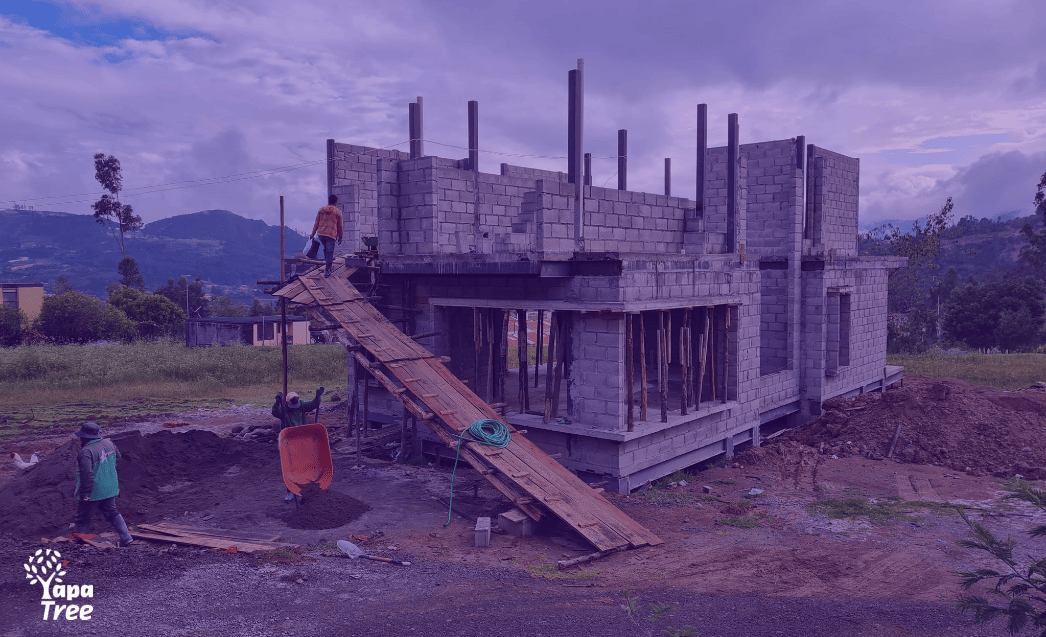

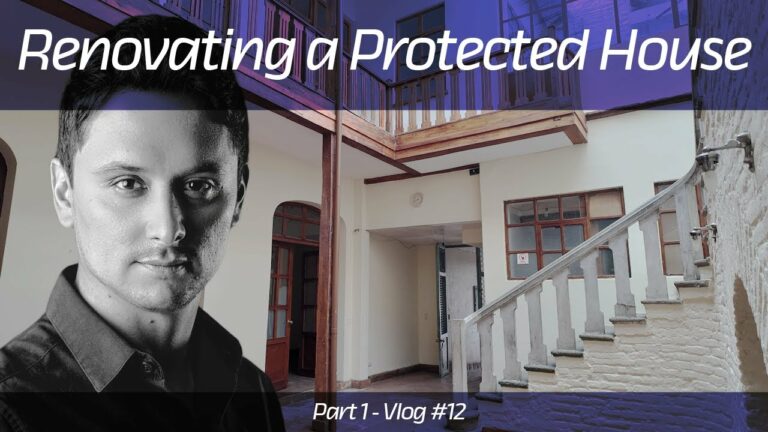

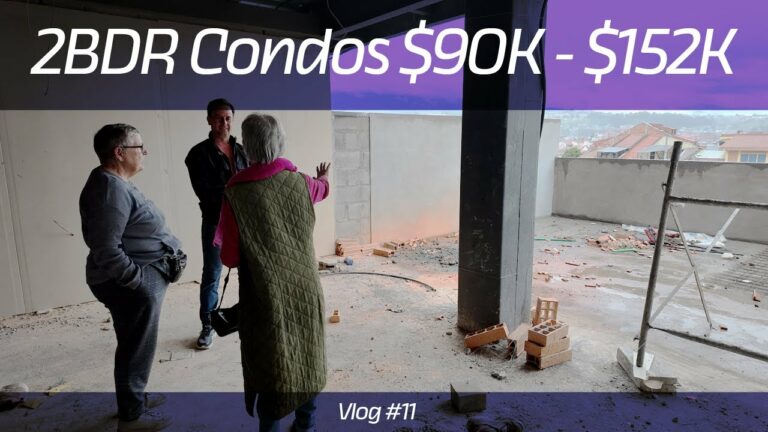

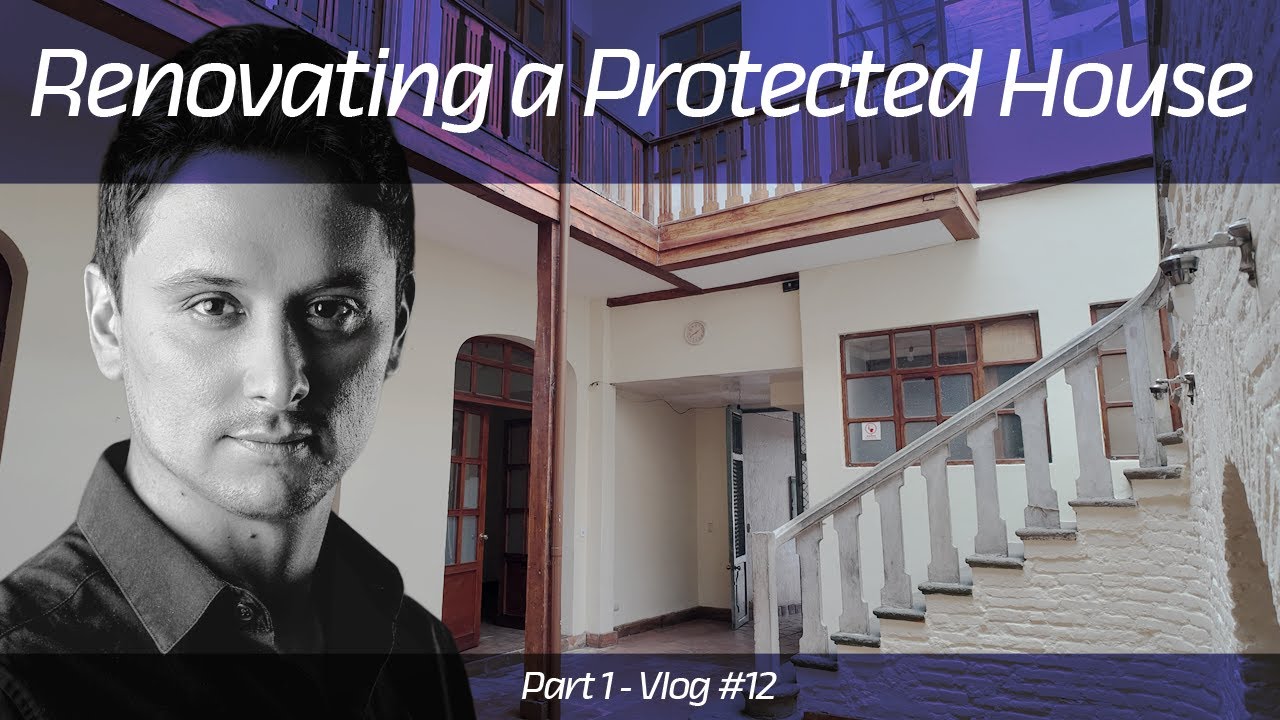

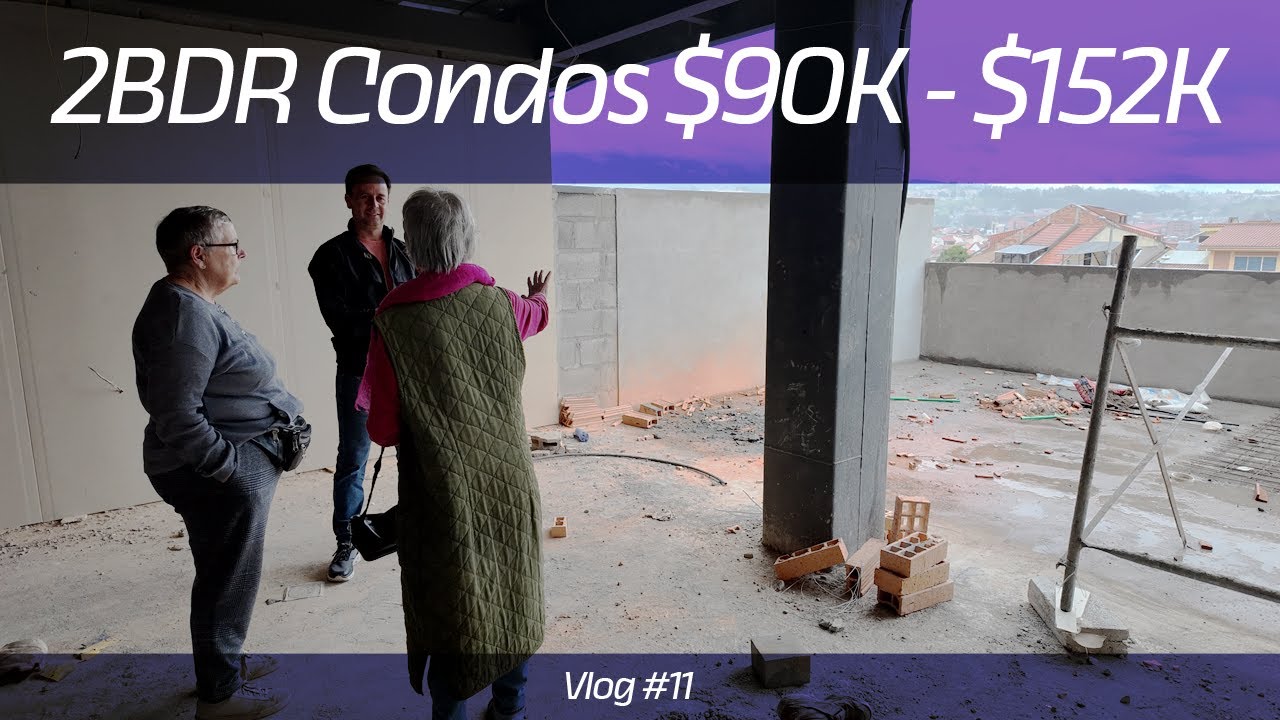
One Response
Just a few small comments, but I’ve never seen a lease come out looking better after a local attorney reviews it. They typically only look for specific illegal language, some of which they miss. Then, there are a number of changes or enhancements that all expats should make to their leases before signing them, and I’ve never seen any of that language added by an attorney who’s reviewed the lease. There may be exceptions, but I’m not aware of any. The real issue is that foreign renters often have different expectations of what a lease should and should not include, and that doesn’t necessarily align with local sensibilities, even when a lease is being reviewed by a competent local attorney; they simply aren’t aware of the things that expats need to include to avoid being taken advantage of by predatory landlords.
The other thing is that notarizing and registering a lease is 100% an owner/landlord responsibility, and the tenant should never have to pay a cent toward that cost. They certainly can “agree” to share the cost, but the requirement to register the lease is an *owner* requirement, and it’s a requirement that, if they fail to do it, can result in a fine equal to six month’s rent, 50% of which goes to the tenant, and 50% goes to the state. And since you can’t register a lease without first notarizing it, once again it becomes 100% the responsibility of the owner to make sure it’s done and paid for.